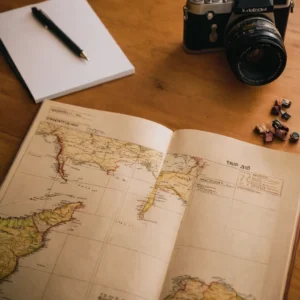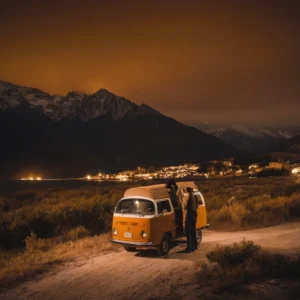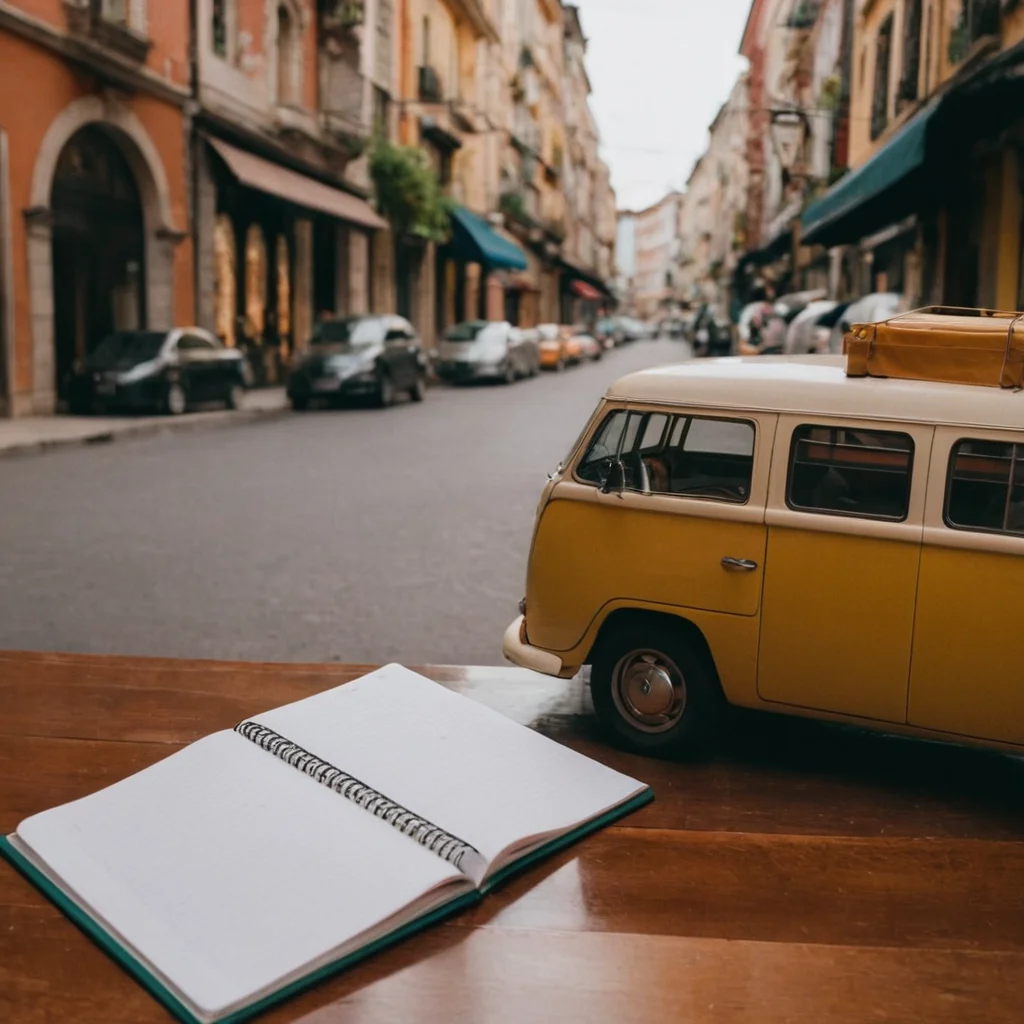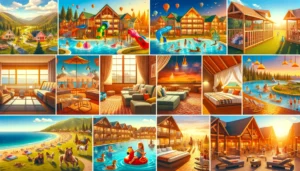Travel : Planning Your Next Trip
#bestplacestotravel, #traveltips, #budgettravel, #traveldeals, #travelinspiration
Travel is the act of moving from one place to another, especially for pleasure or business. It can be a short trip, such as a day trip or weekend getaway, or a longer journey, such as a month-long vacation or a year-long sabbatical.
Travel can be done by many different modes of transportation, including cars, trains, planes, boats, and even camels. It can also be done for many different reasons, such as visiting friends or family, sightseeing, attending a conference, or learning about a new culture.
No matter what your reason for traveling, it is important to be prepared. This means doing your research on the destination you are visiting, packing the right clothes and supplies, and getting the necessary travel documents.
Travel can be a great way to see the world, meet new people, and learn about different cultures. It can also be a challenging and exciting experience that can help you grow as a person.
Types of Travel
There are many different types of travel, each with its own unique benefits and challenges. Some of the most popular types of travel include:
- Domestic travel: Traveling within your own country
- International travel: Traveling to another country
- Overseas travel: Traveling to a country that is located outside of your continent
- Adventure travel: Traveling to remote or challenging destinations
- Cultural travel: Traveling to learn about different cultures
- Educational travel: Traveling to learn about a specific topic
- Volunteer travel: Traveling to volunteer your time and skills
No matter what type of travel you choose, it is important to do your research and plan your trip carefully. This will help you make the most of your experience and avoid any unexpected problems.
Planning Your Trip
Planning a trip can be a fun and exciting experience, but it can also be a lot of work. There are a lot of things to consider when planning a trip, from choosing a destination to booking flights and hotels. However, by following a few simple tips, you can make the process of planning your trip a lot easier.
Here are a few tips for planning your trip:
- Start planning your trip early. This will give you plenty of time to research your options and book your flights and hotels.
- Set a budget for your trip. This will help you to stay on track and avoid overspending.
- Choose a destination that is right for you. Consider your interests, budget, and travel style when making your decision.
- Do your research. Learn as much as you can about your destination before you go. This will help you to make the most of your trip.
- Book your flights and hotels early. This will help you to get the best prices.
- Pack your bags carefully. Make sure to pack everything you need, but avoid overpacking.
- Get travel insurance. This will protect you in case of an emergency.
By following these tips, you can make the process of planning your trip a lot easier and more enjoyable.
Choosing the Right Destination

When choosing a destination for your next trip, there are a few things to consider.
- What are your interests?
- What kind of budget do you have?
- How much time do you have?
- What kind of climate do you prefer?
- What kind of activities do you want to do?
Once you have considered these factors, you can start narrowing down your options. Here are a few tips for choosing the right destination for your next trip:
- Do your research. Read travel guides, articles, and blogs to learn more about different destinations. Talk to friends and family who have visited different places.
- Consider your budget. There are many different ways to travel, so you can find a destination that fits your budget.
- Be flexible with your dates. Traveling during the shoulder season or off-season can often save you money.
- Consider the climate. If you’re not a fan of hot weather, you might want to avoid visiting a tropical destination during the summer months.
- Think about the activities you want to do. If you’re an avid hiker, you might want to choose a destination with plenty of hiking trails.
With a little bit of research, you can find the perfect destination for your next trip.
FAQ
- What are the best places to travel for a first-time solo traveler?
- What are the best places to travel on a budget?
- What are the best places to travel for families?
- What are the best places to travel for couples?
- What are the best places to travel for adventure seekers?
For more information on choosing the right destination for your next trip, please visit the following resources:
- Lonely Planet: Choosing a Destination
- Travel and Leisure: How to Choose a Destination for Travel
- Condé Nast Traveler: How to Choose a Destination for Your Next Trip
Getting There
Once you’ve decided on your destination, it’s time to start planning how to get there. There are a number of different ways to travel, each with its own advantages and disadvantages.
Air travel is the most common way to travel long distances. It is fast, convenient, and relatively affordable. However, air travel can also be expensive, and it can be stressful if you have a lot of luggage.
Rail travel is a good option for shorter distances, or for people who want to enjoy the scenery. Trains are usually more comfortable than planes, and they offer more opportunities to get up and move around. However, rail travel can be more time-consuming than air travel, and it can be more expensive if you book at the last minute.
Bus travel is a budget-friendly option for long-distance travel. Buses are usually slower than trains or planes, but they can be a great way to see the countryside.
Driving is a good option for people who want to have more control over their journey. Driving allows you to stop and see things along the way, and it can be a more affordable option than flying or taking the train. However, driving can be more time-consuming than other forms of travel, and it can be stressful if you have to deal with traffic.
Cruises are a great way to see multiple destinations in one trip. Cruises typically include all of your meals and accommodations, and they offer a variety of activities and entertainment options. However, cruises can be expensive, and they can be a lot of work if you have to pack and unpack your luggage multiple times.
Once you’ve chosen your mode of transportation, it’s time to start booking your tickets. Be sure to compare prices from different airlines, train companies, or bus companies before you make a decision. You may also want to consider booking your tickets in advance, especially if you are traveling during peak season.
Here are some tips for getting there safely and efficiently:
- Arrive at the airport or train station early.
- Check in for your flight or train well ahead of time.
- Pack light so that you don’t have to carry too much luggage.
- Stay hydrated by drinking plenty of water.
- Get up and move around every few hours to avoid getting stiff.
- Listen to your body and take breaks when you need them.
By following these tips, you can make your journey to your destination safe, comfortable, and enjoyable.
Staying Safe

When traveling, it is important to take precautions to stay safe. Here are some tips:
- Be aware of your surroundings and keep your belongings close at hand.
- Don’t travel alone at night.
- Avoid secluded areas.
- Be careful when using public transportation.
- Don’t accept drinks or food from strangers.
- Be aware of the local laws and customs.
- Get travel insurance.
It is also important to be aware of the potential health risks of travel. Here are some tips to stay healthy while traveling:
- Get vaccinated for the appropriate diseases.
- Drink bottled water or filtered water.
- Wash your hands frequently.
- Avoid eating raw or uncooked foods.
- Be careful when swimming in unfamiliar waters.
By following these tips, you can help to stay safe and healthy while traveling.
FAQ
- Q: What should I do if I feel unsafe while traveling?
- A: If you feel unsafe, it is important to take action to protect yourself. You can do this by:
- Moving to a safer location.
- Calling the police or security.
- Seeking help from a trusted friend or family member.
- Q: What should I do if I get sick while traveling?
- If you get sick while traveling, it is important to seek medical attention as soon as possible. You can do this by:
- Visiting a local doctor or hospital.
- Calling your doctor or health insurance company for advice.
- Going to a travel clinic.
- Q: What should I do if I lose my passport while traveling?
- If you lose your passport while traveling, it is important to take action to replace it as soon as possible. You can do this by:
- Contacting the nearest embassy or consulate of your home country.
- Filling out a lost passport report.
- Applying for a new passport.
Dealing with Culture Shock
Culture shock is a common experience for people who travel to new countries or live in foreign cultures. It can be caused by a variety of factors, such as language barriers, unfamiliar customs, and different values. Culture shock can manifest itself in a variety of ways, including anxiety, depression, homesickness, and difficulty adjusting to a new environment.
There are a number of things that you can do to deal with culture shock. First, it is important to be aware of the symptoms of culture shock and to understand that they are a normal reaction to a new environment. Second, it is important to find ways to cope with the stress of culture shock. This may involve talking to other people who are experiencing similar challenges, practicing relaxation techniques, or seeking professional help. Third, it is important to give yourself time to adjust to your new environment. Culture shock is a process, and it takes time to learn to cope with the challenges of living in a foreign culture.
Here are some specific tips for dealing with culture shock:
Be patient with yourself. It takes time to adjust to a new environment. Don’t expect to be able to adapt overnight.
Be open to new experiences. Try to embrace the different culture and learn about its customs and values.
Find ways to connect with other people. This could involve joining a club or group, taking a class, or volunteering your time.
Take care of yourself. Make sure to get enough sleep, eat healthy foods, and exercise regularly.
Seek professional help if needed. If you are struggling to cope with culture shock, don’t hesitate to seek professional help. A therapist can help you learn to manage your stress and cope with the challenges of living in a foreign culture.
Culture shock can be a challenging experience, but it can also be a positive one. By learning to cope with culture shock, you can gain a new appreciation for different cultures and learn about yourself in the process.
FAQ
What are the symptoms of culture shock?
The symptoms of culture shock can vary from person to person, but some common symptoms include anxiety, depression, homesickness, difficulty sleeping, difficulty concentrating, and irritability.
How long does culture shock last?
Culture shock is a process, and it takes time to adjust to a new environment. The length of time it takes to adjust will vary from person to person, but it can typically take anywhere from a few weeks to a few months.
What can I do to deal with culture shock?
There are a number of things that you can do to deal with culture shock. Some specific tips include being patient with yourself, being open to new experiences, finding ways to connect with other people, taking care of yourself, and seeking professional help if needed.
*What if I’m struggling to cope with culture shock?
If you are struggling to cope with culture shock, don’t hesitate to seek professional help. A therapist can help you learn to manage your stress and cope with the challenges of living in a foreign culture.
Eating Locally
Eating locally is a great way to experience the culture and cuisine of a new place. It’s also a great way to support local businesses and the economy. When you eat locally, you’re not only getting fresh, delicious food, but you’re also helping to keep your money in the community.
Here are a few tips for eating locally when you travel:
- Ask your hotel or hostel for recommendations for local restaurants.
- Visit farmers markets or street food stalls.
- Look for restaurants that use locally-sourced ingredients.
- Try to avoid chain restaurants.
If you’re not sure where to start, here are a few of our favorite local restaurants around the world:
- In New York City, try Katz’s Deli for a classic pastrami sandwich.
- In Paris, try Bouillon Chartier for a traditional French bistro meal.
- In London, try Borough Market for a variety of fresh, local produce.
- In Tokyo, try Sushizanmai for some of the best sushi in the world.
Eating locally is a great way to enjoy your travels and support the local community. So next time you’re in a new city, be sure to check out some of the local restaurants. You won’t be disappointed!
Exploring the Culture
Exploring the culture of a new place is one of the most rewarding aspects of travel. It’s a chance to learn about different ways of life, meet new people, and try new things. When you’re traveling, it’s important to be open to new experiences and to embrace the local culture. Here are a few tips for exploring the culture of a new place:
- Talk to the locals. The best way to learn about a culture is to talk to the people who live there. Ask them about their lives, their customs, and their beliefs.
- Visit local businesses. Eating at a local restaurant, shopping at a local market, or taking a tour of a local factory are all great ways to immerse yourself in the local culture.
- Attend cultural events. Cultural events are a great way to see a culture in action. From festivals to concerts to sporting events, there are always plenty of cultural events happening in any given city.
- Take a language class. Learning a new language is a great way to immerse yourself in a culture and to communicate with locals.
- Read books and articles about the culture. Reading about a culture can help you to understand it better and to appreciate its unique features.
Exploring the culture of a new place can be a challenging but rewarding experience. By following these tips, you can learn more about the world and make new friends along the way.
FAQ
- What are some of the best ways to learn about a culture?
- Talk to the locals.
- Visit local businesses.
- Attend cultural events.
- Take a language class.
- Read books and articles about the culture.
- What are some of the best cultural events to attend?
- Festivals
- Concerts
- Sports events
- Art exhibitions
- Theater performances
- What are some of the best ways to learn a new language?
- Take a class
- Use a language learning app
- Watch movies and TV shows in the language
- Listen to music in the language
- Read books and articles in the language
Shopping for Souvenirs
Shopping for souvenirs is a great way to remember your trip and share your experiences with friends and family. However, it can also be a bit of a challenge, especially if you’re not sure what to look for or where to find the best deals. Here are a few tips to help you make the most of your souvenir shopping experience:
-
- Do your research before you go.
This will help you narrow down your options and make the most of your time. Find out what souvenirs are popular in the area you’re visiting, and read reviews to get an idea of what other people have thought of them. You can also check online for deals on souvenirs before you leave home.
-
- Set a budget.
It’s easy to get carried away when shopping for souvenirs, but it’s important to set a budget before you start spending. This will help you avoid overspending and make sure you have enough money to buy the souvenirs you really want.
-
- Shop around.
Don’t just buy the first souvenir you see. Take some time to compare prices and quality at different stores. You may be able to find the same souvenir for a lower price at another store.
-
- Don’t be afraid to haggle.
In some countries, it’s customary to haggle over the price of souvenirs. If you’re not sure how to haggle, ask a local for help. You may be able to get a better price on your souvenirs if you’re willing to negotiate.
-
- Consider buying local products.
One of the best ways to support the local economy is to buy souvenirs that are made locally. This will help you get a taste of the local culture and support the people who live there.
-
- Be aware of customs regulations.
Before you pack your souvenirs, make sure you’re aware of the customs regulations in your home country. Some countries have restrictions on the amount of souvenirs you can bring back, and you may have to pay taxes on them.
-
- Enjoy the process!
Shopping for souvenirs should be fun! Take your time, browse the different stores, and don’t be afraid to ask for help. Souvenir shopping is a great way to experience the local culture and make memories that will last a lifetime.
Returning Home
After a long and exciting trip, it’s time to come home and relax. Here are a few tips to help you make the most of your return:
-
- Take some time to decompress.
After being on the go for a while, it’s important to take some time to relax and decompress. This could mean taking a long bath, reading a book, or spending time with your family and friends.
-
- Reorganize your belongings.
After a long trip, your belongings may be a bit disorganized. Take some time to reorganize your suitcases and closets so that everything is in its place.
-
- Share your photos and stories.
One of the best ways to relive your trip is to share your photos and stories with your friends and family. This can be done through social media, email, or in person.
-
- Reflect on your trip.
Taking some time to reflect on your trip can help you process your experiences and make memories that will last a lifetime. This could mean writing in a journal, talking to your friends and family, or simply thinking about your trip.
-
- Plan your next trip.
After a great trip, it’s only natural to start planning your next one. This could mean doing some research, saving up money, or simply dreaming about your next adventure.




